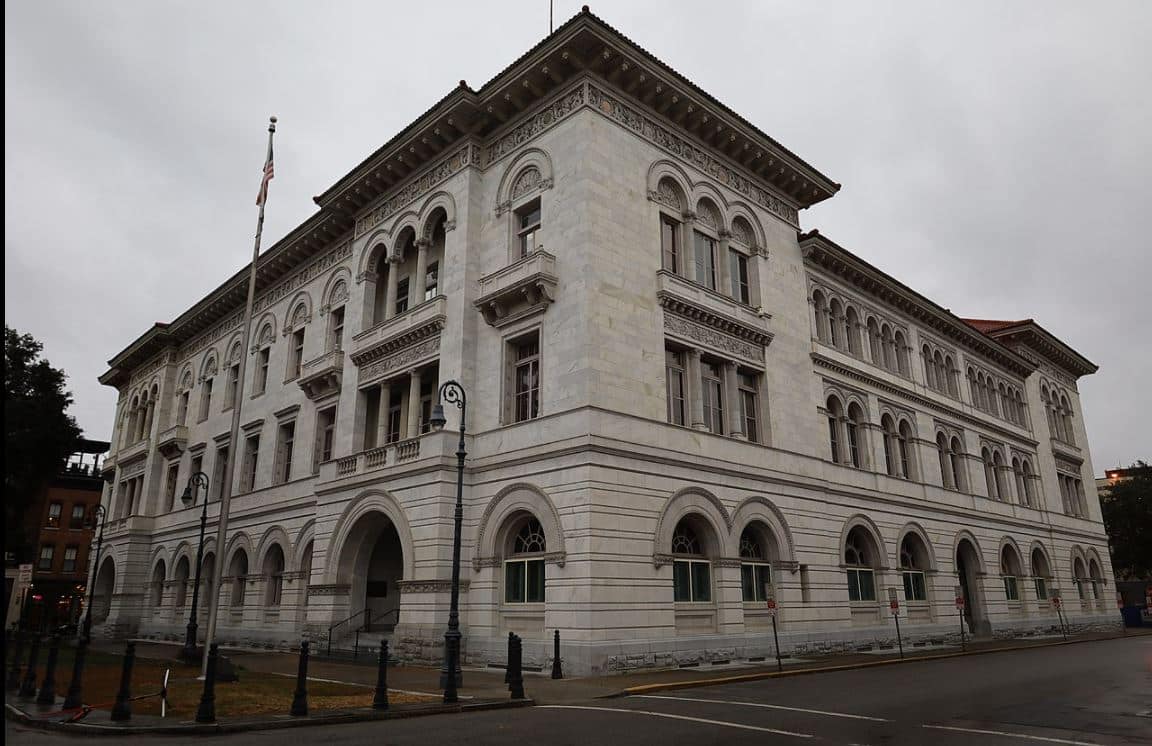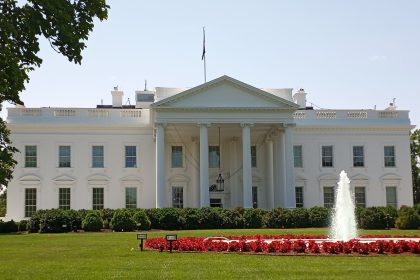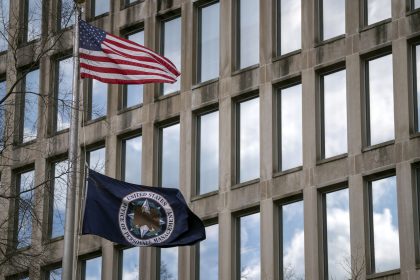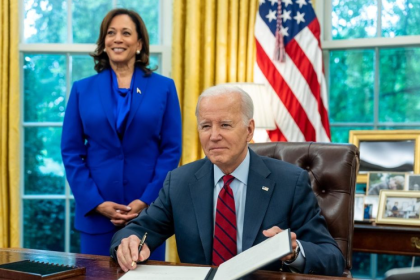Federal Court Blocks Vaccine Mandate for Federal Contractors

SAVANNAH, Ga. — A federal judge in Georgia has blocked the Biden administration from enforcing its vaccine mandate for federal contractors, handing a victory to several state attorneys general who argued the mandate created an unfair economic burden.
Presiding in the federal courthouse in historic downtown Savannah, U.S. District Judge R. Stan Baker held that while the federal procurement act upon which President Biden’s executive order was premised “explicitly and unquestionably” bestows some authority upon the president, “the court is unconvinced, at this stage of the litigation, that it authorized him to direct the type of actions by agencies that are contained in EO 14042.”
Just last week, a federal judge in Kentucky granted a preliminary injunction on much the same grounds, concluding President Biden had exceeded his statutory authority under the Federal Property and Administrative Services Act.
The government has argued the executive order was necessary to promote “economy and efficiency” under the Federal Property and Administrative Services Act. But in both cases, the court’s question noted the president’s statutory authority over procurement does not extend automatically to measures addressing public health.
The difference is, in the Kentucky case U.S. District Judge Gregory Van Tatenhove limited his preliminary injunction to just three states in his jurisdiction: Kentucky, Ohio and Tennessee. Judge Baker issued a nationwide injunction.
The original lawsuit in Georgia was filed by elected officials in a total of seven states, but the judge allowed the Associated Builders and Contractors trade association to join the lawsuit as an intervenor.
Because the builders group has members in multiple states, Baker said the only way to address their concerns was through an injunction that covered the entire country.
In his opinion granting the injunction, Baker said three witnesses “described the incredibly time-consuming processes they have undertaken to identify the employees covered by the mandate and to implement software and technology to ensure that those employees have been fully vaccinated (or have requested and been granted an accommodation or exemption) by the deadline in January.”
“Not only must plaintiffs ensure that their own employees satisfy the mandate, but they also must require that any subcontractors’ employees working on or in connection with a covered contract are in compliance,” he said.
He also noted that he heard from members of the builders group who had the same burdens, but on a smaller scale.
Still, he wrote, “Complying with a regulation later held invalid almost always produces the irreparable harm of nonrecoverable compliance.”
On the matter of whether Biden’s executive order was properly authorized under the procurement act, Baker said he looked at many cases, but “none have involved measures aimed at public health and none have involved the level of burdens implicated by Executive Order 14042.”
“[The order] has already required and will continue to require extensive and costly administrative work by employers and will force at least some individuals to choose between getting medical treatment that they do not want or losing their job (and facing limited job replacement options due to the mandate),” he concluded.
Dan can be reached at [email protected] and at https://twitter.com/DanMcCue
























